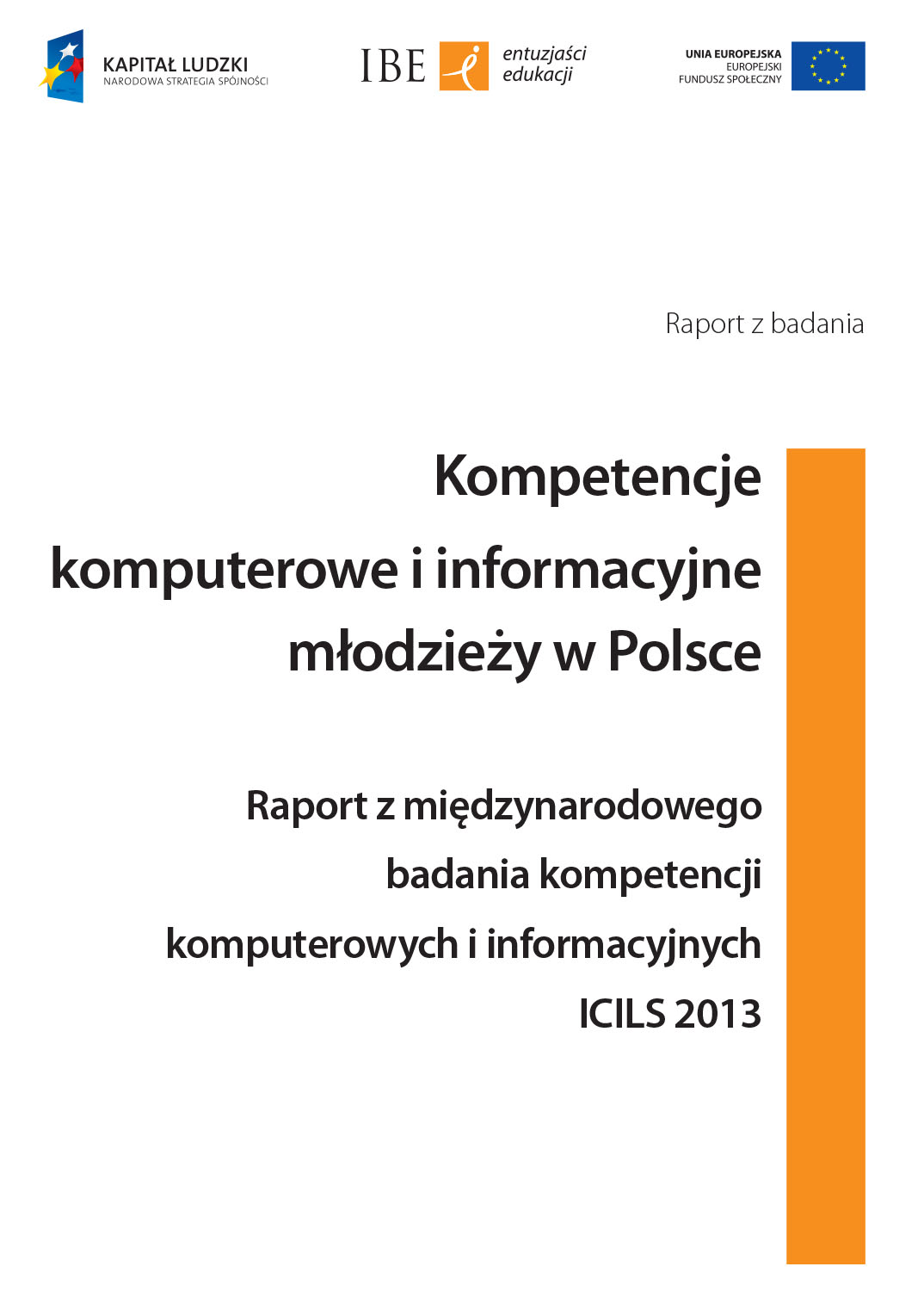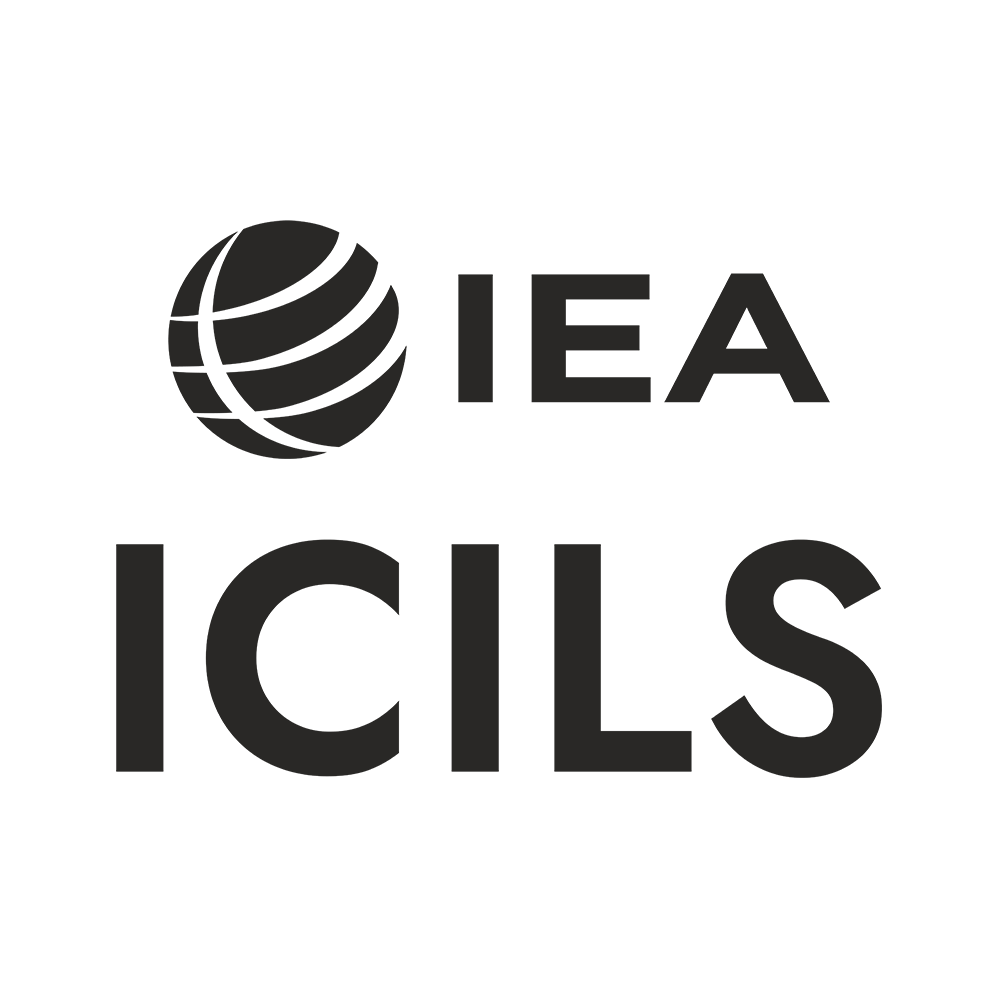ICILS was initiated and is organized by the International Association for the Evaluation of Educational Achievement (IEA). ICILS measures competences relating to the use of a computer as a tool for work, communication, to search for and evaluate information. Since 2018, it has also assessed computational thinking skills, which involve solving problems using algorithmic thinking. The study has been conducted every five years since 2013. Poland participated in the first cycle of the study.
The study measures the competences of students in the eighth year of schooling, with the average age of participants not being less than 13.5 years. In Poland, the 2013 study was conducted among second-year lower secondary school (gimnazjum) students.
The study is conducted on a representative, random sample of students. The sampling is done in two stages – first, schools are randomly selected, then specific 8th-grade classes are randomly chosen within those schools. All students from the selected classes are invited to participate. Approximately 150 schools and 4,000–5,000 students usually participate in the study in each country. During the assessment, which takes place at school, students use a computer to complete task sets focusing on computer and information literacy, and after this, they respond to questionnaires.
The study also examines a range of contextual factors relating to the opinions and attitudes of students, their home and educational experiences, teacher experiences, teaching processes at the classroom and school level, and school resources and organization pertaining to the use of ICT. Data on these issues are collected through questionnaires completed by students, teachers of various subjects, school ICT coordinators, and the principals of the selected schools.
Teachers of eighth-grade classes also participate in ICILS. In each sampled school, teachers are randomly selected from all those teaching at this grade level, not only from those who teach the students selected for the assessment. This approach makes it possible to generalize the findings to the entire population of eighth-grade teachers in a given country.
The ICILS study in Poland is conducted by the Educational Research Institute – National Research Institute. Poland will participate in the study again in 2028. ICILS 2028 is being conducted on behalf of the Ministry of National Education. The study is conducted as part of the project "Preparation and implementation of international educational research in the field of key competences” financed by European Funds for Social Development (FERS).
The number of countries and regions participating in ICILS has varied. In the first 2013 cycle, 22 countries and regions took part, while a decade later, 35 countries and regions participated.
For more information, please visit the IEA website.
Data and instruments
The study assessment framework
The scope and assumptions of each ICILS cycle are presented in the assessment framework. The frameworks for successive cycles maintain a continuity that is essential for making comparisons across cycles. However, they are reviewed and updated for each cycle to reflect, among other things, technological advancements and the rapidly changing digital reality that the study addresses. The preparation of each framework involves experts as well as representatives of the participating countries
The assessment framework for each ICILS cycle is available on the IEA website.
Country Reports – Poland
So far, one country report from the ICILS study has been prepared. The Polish report provides a more detailed discussion of the results concerning Poland and students from Polish schools: these results are analyzed and described more thoroughly, and compared with results from other countries.
ICILS 2013

Polish ICILS 2013 Report
Sijko K. (red.) (2014). Kompetencje komputerowe i informacyjne młodzieży w Polsce. Raport z międzynarodowego badania kompetencji komputerowych i informacyjnych ICILS 2013
Warszawa: Instytut Badań Edukacyjnych
International Reports
International reports presenting the results of individual ICILS cycles, as well as other publications and materials related to the study are available on the IEA websites.
ICILS 2023
The study was held from 2021 to 2024. The main study at schools was conducted in 2023 and its results were announced in November 2024. The databases were released in February 2025.
Poland did not participate in the 2023 cycle of the ICILS study.





